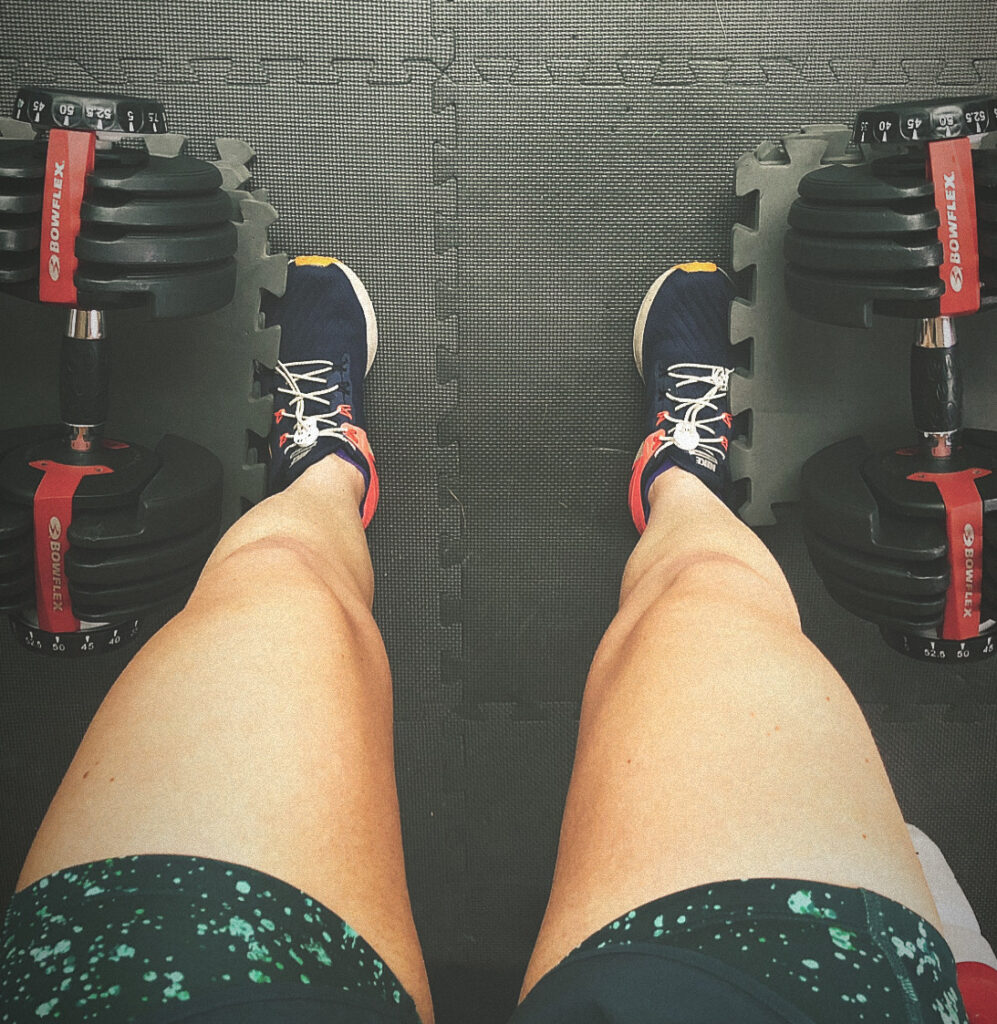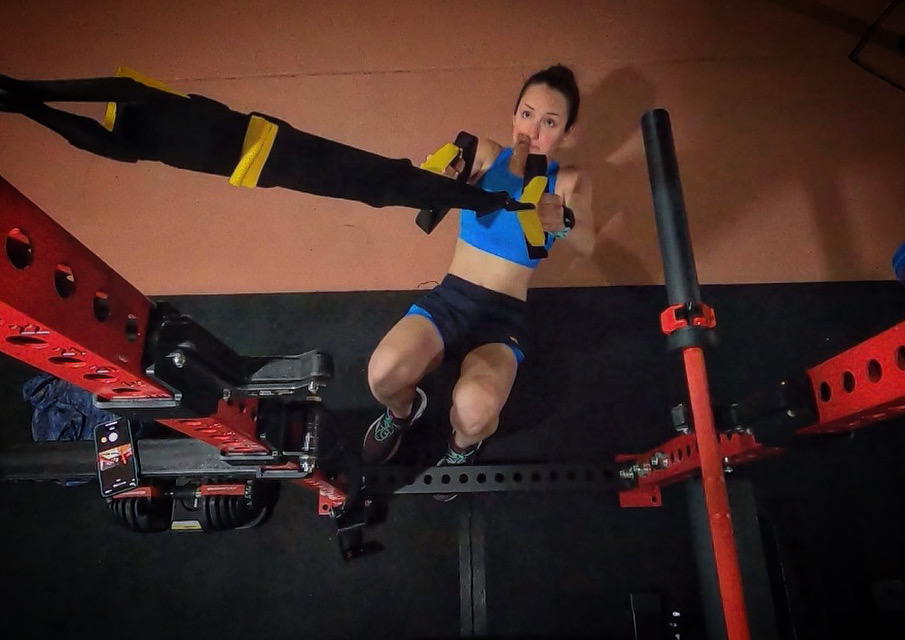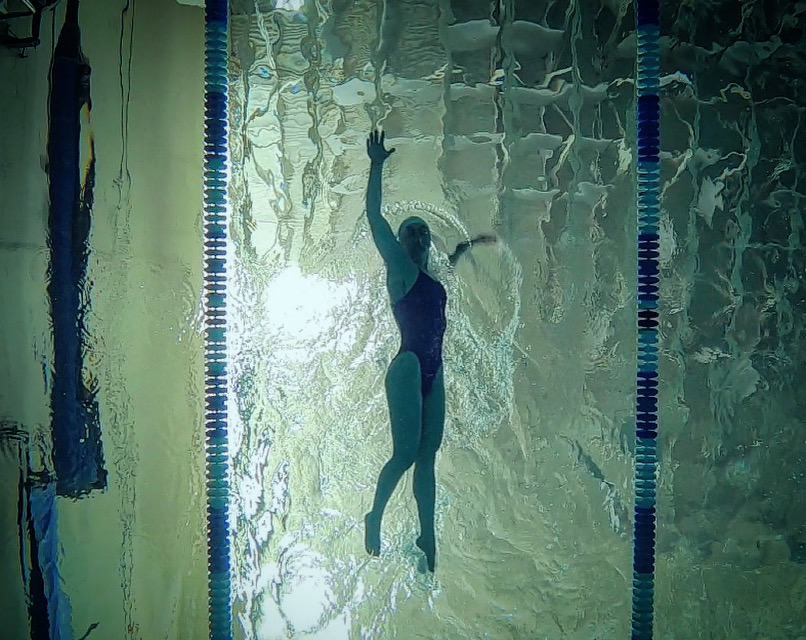
Which is better for fat loss: cardio or strength training?
Trick question.
Answer: calorie deficit.
I get questions from nutrition clients and friends pertaining to this all the time.
“How much cardio should I do to lose weight?”
“Is lifting okay even if I’m not breathing hard?”
“Does walking burn enough calories, or do I need to run?”
First off, yes, exercise DOES effect calories in vs calories out. Yes, it can HELP with fat loss. Of course the two are intertwined; I’m not saying they’re not.
But fat loss will only happen if the nutrition side of things is addressed, and that’s why it isn’t best to focus PRIMARILY on exercise when trying to lose weight.
Let’s discuss in a bit more detail and clear a few things up.

Cardio
Do you need to do cardio to lose fat?
No.
Why SHOULD you do cardio?
It’s fantastic for your overall health. It improves heart health, can help lower blood pressure, boosts your mental health, positively impacts your sleep – the benefits are tremendous. Invest in cardiovascular exercise for your health, not for the calorie burn.
Why should you NOT focus on cardio for fat loss?
Being in a calorie deficit is the way to lose fat. You could do all the cardio you want, but if calories in are greater than calories out, you won’t lose fat.
Does cardio burn calories, which could help with fat loss? Of course. But relatively speaking, calories burned during exercise are only a fraction of the total calories you’ll eat in a day. Let’s say you burn 200 calories walking for 30 minutes. That’s a very small number and very easy to consume quickly through food. It’s much easier and more controlled to regulate your nutrition through the number of calories you’re consuming, not what you’re burning. (And by the way, the number your fitness tracker or the treadmill says you burned is very likely inaccurate.)
Here’s another way to think about it:
Last week I went on a group bike ride up a canyon, where the temperature plummeted about 20 degrees by the time we got to the top. Naturally, my Raynaud’s-inflicted self immediately turned into an icicle. To combat the cold, I had brought gloves with me. They did help a tiny bit, but in order to warm up in those conditions, I would have also had to have arm warmers, an extra jacket, long pants, a headband for my ears, a neck gaiter, thicker socks, shoe covers, and hand/toe warmer packets.
In my analogy here, the gloves represent cardio, and all the other accessories I lacked represent nutrition.
I will say that being active throughout the day through non-exercise activities (walking around the office or house frequently, taking the stairs, going for short walks between meetings) is massively helpful for both fat loss and weight maintenance. This frequent movement adds up greatly over the course of the day, as opposed to getting in a 30-minute workout but then sitting at your desk for the remainder of the day.

Strength Training
Do you need to strength train to lose fat?
No.
Why should you strength train?
It’s also fantastic for your overall health. It builds muscle (and helps to retain muscle as you get older, when you’ll lose muscle more easily), increases bone density, lowers your risk of injury, and similar health benefits as cardio.
The effects stick around. It might take some time to build muscle, but in turn it would take a long time to lose it if you stopped.
It’s functional. The more you lift heavy stuff, the easier it will be to carry bags to the car from the grocery store. Or pick up your kids or grandkids. Or move furniture around. Plus, it feels pretty awesome to be strong.
Why should you NOT focus on strength training for fat loss?
Being in a calorie deficit is the way to lose fat. You could do all the lifting you want, but if calories in are greater than calories out, you won’t lose fat.
Yes, strength training also burns calories, but not a lot in one session, and generally less than a cardio session of the same length. So the same principles as cardio apply in terms of being able to very easily consume back the number of calories you burned.
I will say here as well that your metabolism is affected in such a way that you’ll continue to burn calories for a longer period of time after your workout than you would from a cardio session. Additionally, having more muscle results in burning more calories in general throughout the day. So yes, this can HELP with fat loss and weight maintenance, arguably a bit more than cardio because of this, but it still shouldn’t be the reason to do it.
Now that we’ve established that cardio and strength training should be done for all kinds of reasons NOT directly pertaining to fat loss, the question still remains: which one should you do, in life?
Answer #1: Whichever you enjoy.
Answer #2: Both.
You don’t have to do cardio if you hate it. You don’t have to lift weights if you hate it. But they both have tremendous benefits, and I’d strongly recommend incorporating some form of both into your life. This isn’t an either/or situation by any means.
Yes, strength training has longer-lasting effects that can have a bigger influence on metabolism and therefore fat loss. So if you really can ONLY choose one based on time constraints, you might consider strength training. But that doesn’t mean cardio won’t help, or that you can’t also go for walks to get in steps (which is cardio itself).
What form of cardio is best, you ask? Whatever you enjoy. Walking is fantastic, and very underrated (and not inferior to running, to touch on one of the frequent questions I get), so if you currently don’t do any cardio at all, start there. For most people, it’s easy, accessible, and has excellent benefits.
Otherwise, it’s whatever you want. Don’t overthink it; just move. Bike. Run. Row. Elliptical. Swim. Jump Rope. It doesn’t matter, just find what you enjoy. If you don’t enjoy any of it, find the one you hate the least. Look for ways to help make it more bearable (listen to music or a podcast, watch TV, do it with a friend or a group, etc).
So, hopefully this clears a few things up.
Yes, cardio and strength training both affect the number of calories you burn, and therefore can contribute to your calorie deficit.
Yes, strength training’s metabolic benefits can help if you’re trying to lose fat.
Yes, it’s a great idea to incorporate exercise and daily movement into your routine.
BUT, if the goal is fat loss, nutrition should be the first place to turn.
It’s much easier to regulate what you’re consuming rather than what you’re burning, and nutrition is the driver for fat loss. (Think of the many pieces of warm weather accessories vs a single pair of gloves from my analogy earlier).
Essentially, I’m encouraging you to shift your mindset.
Exercise for your health. For your heart. For your functional strength. For your mental health. For how it makes you feel.
And if it has an effect on your calorie deficit, that’s just a bonus.
Happy exercising!
-Dina


Dina Grimaldi is a triathlon & nutrition coach who helps athletes reach their goals while finding the balance they need to fit training comfortably into their lives, and who guides and supports those with nutrition or health goals to cultivate a lifestyle of sustainable habits and a healthy relationship with food.